How Dedicated Community Health Workers Are Reaching Madagascar’s Unvaccinated Children
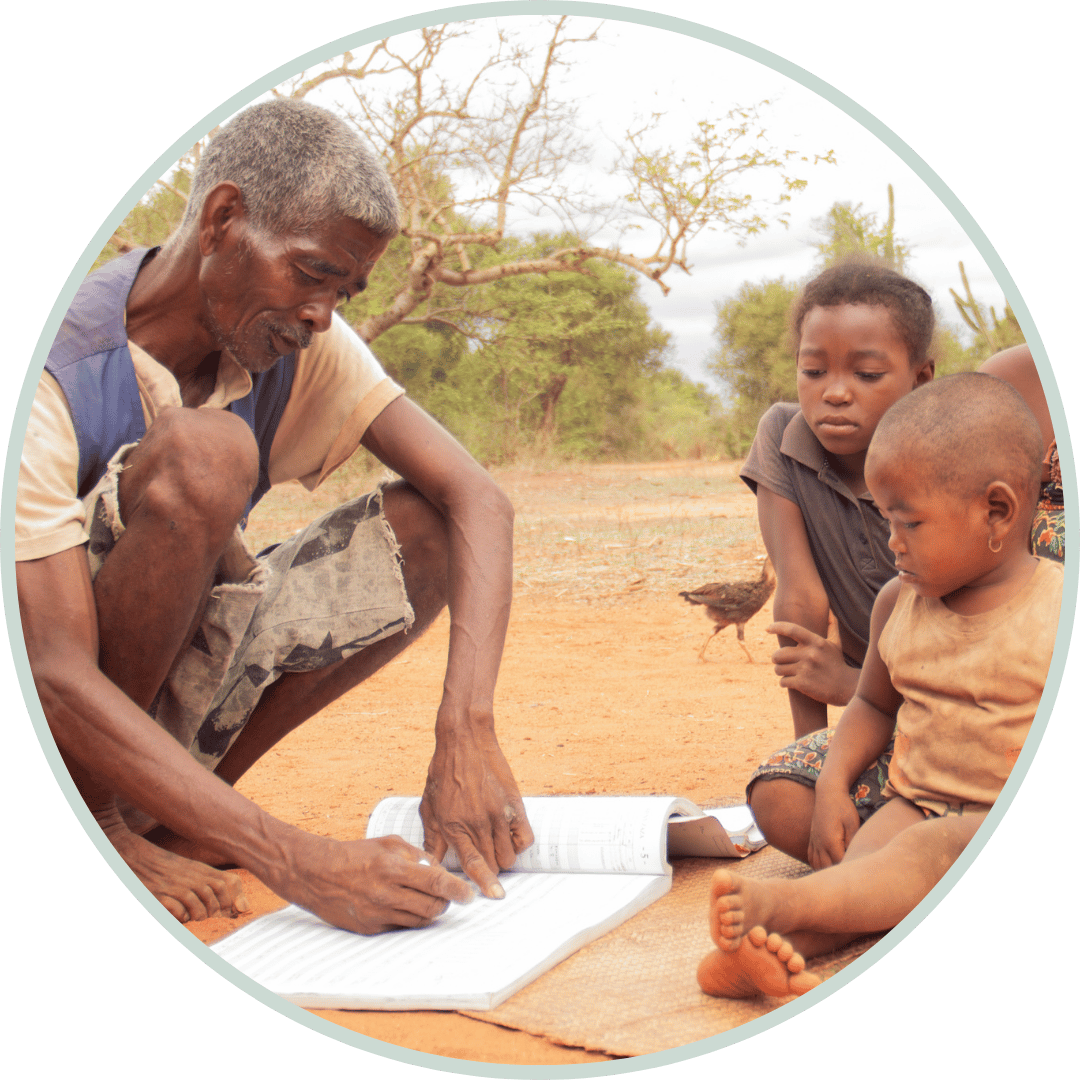
In rural southern Madagascar, where financial poverty and geographic isolation make healthcare access challenging, Community Health Workers (CHWs) are crucial in vaccinating children who would otherwise miss out. Yet, despite their critical role, CHWs often lack steady support from public health actors, such as the government or NGOs. Doctors for Madagascar (DfM) believes that building a sustainable healthcare system requires long-term investment in these frontline health champions. We have supported Doctors for Madagascar’s community healthcare program through our Social Innovation Ecosystem Fund.
Madagascar, an island nation off Africa’s southeastern coast, is home to about 4.3 million children below the age of five. Yet, many have never visited a healthcare facility, and approximately 35 percent have not received their first dose of the DTP vaccine, which protects against potentially deadly diseases like diphtheria, tetanus, and pertussis. Barriers like long travel distances, poor cold chain infrastructure, vaccine shortages, and mistrust of the healthcare system have left over 300,000 children unvaccinated in the country.
With support from Bayer Foundation and Gavi - The Vaccine Alliance, and in close collaboration with Charité - Universitätsmedizin Berlin and mTOMADY, DfM aims to vaccinate at least 40,000 children by March 2026, targeting an 80 percent reduction in unvaccinated children across three regions of southern Madagascar.

"This collaboration between public and private sectors is essential to addressing the healthcare challenges in Madagascar. Gavi, the Vaccine Alliance, plays a key role in expanding immunisation access by leveraging public-private partnerships. Through its matching fund mechanism, Gavi amplifies the impact of private sector contributions, such as Bayer Foundation’s support for this project."
Stefan Wilhelm, Associate Director of Social Innovation at Bayer Foundation
The initiative provides healthcare workers with essential tools for vaccination planning, tracking, and follow-ups, ultimately contributing to a sustainable healthcare system aligned with Madagascar’s national health strategy.
“This project will help close critical immunization gaps, strengthening Madagascar’s resilience against preventable diseases and supporting its goal of achieving Universal Health Coverage by 2030,” Stefan Wilhelm adds.
First Step of the Program: Mapping Missed Communities

“The available estimate-based database was widely seen as unreliable, so we first needed to collect accurate data to identify non-vaccination hotspots before implementing vaccination activities.”
Dr. Nadine Muller of Charité and DfM
The team conducted a comprehensive census across nine priority districts to map the locations and vaccination status of children under five. CHWs were trained and financially enabled to conduct door-to-door visits, updated community registers, which track the vaccination status of every child.
“This census underscored the importance of accurate vaccination documentation,” Dr. Muller continues. “Inconsistent availability of paper-based tools and the heavy workload of healthcare staff led to substantial gaps in documentation, making it difficult to track and follow up on vaccinations. This highlights the urgent need for a digital system to simplify record-keeping and follow-ups.”
The mapping effort lays the foundation for interventions that target the areas with the greatest need, ensuring more efficient vaccination efforts.
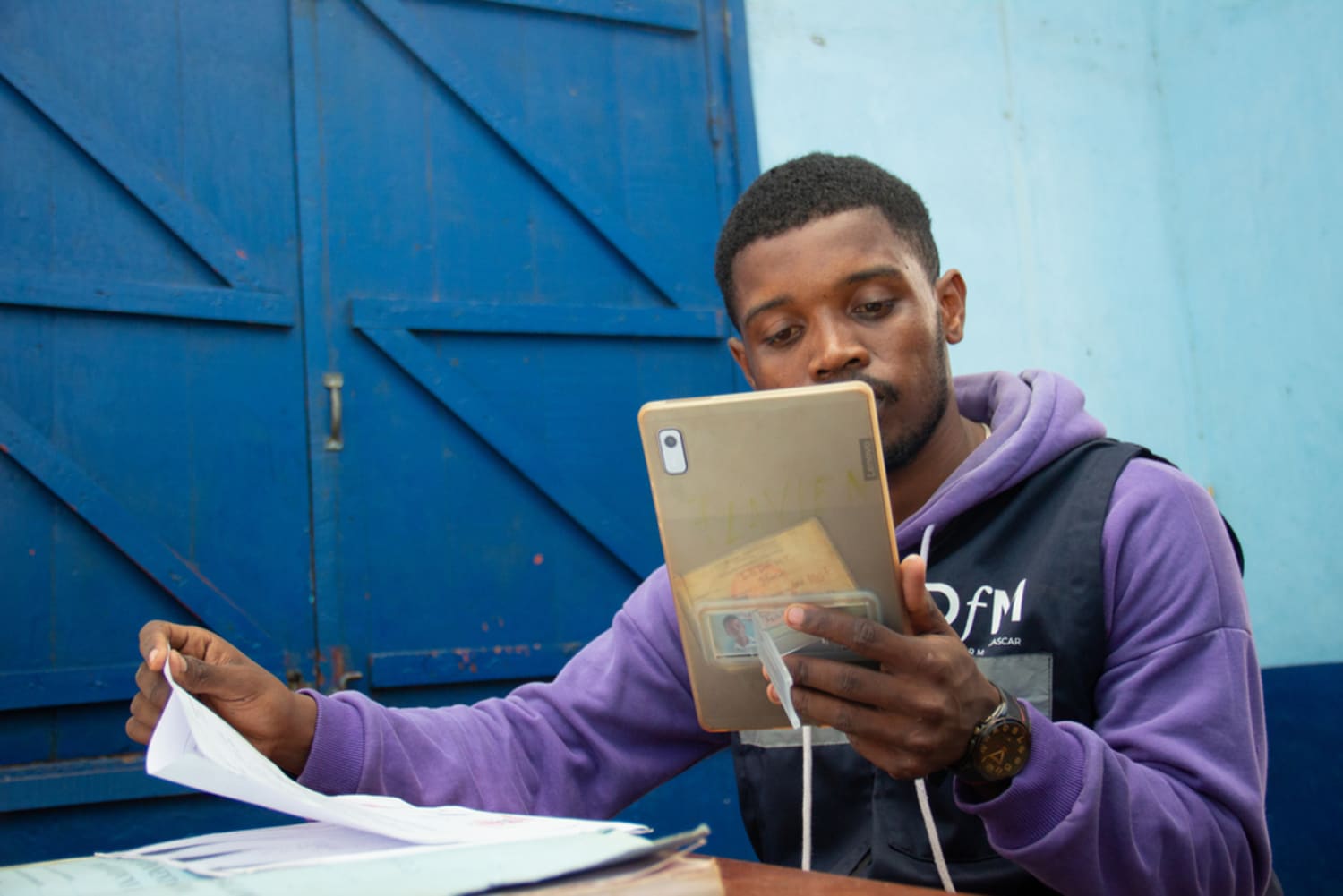
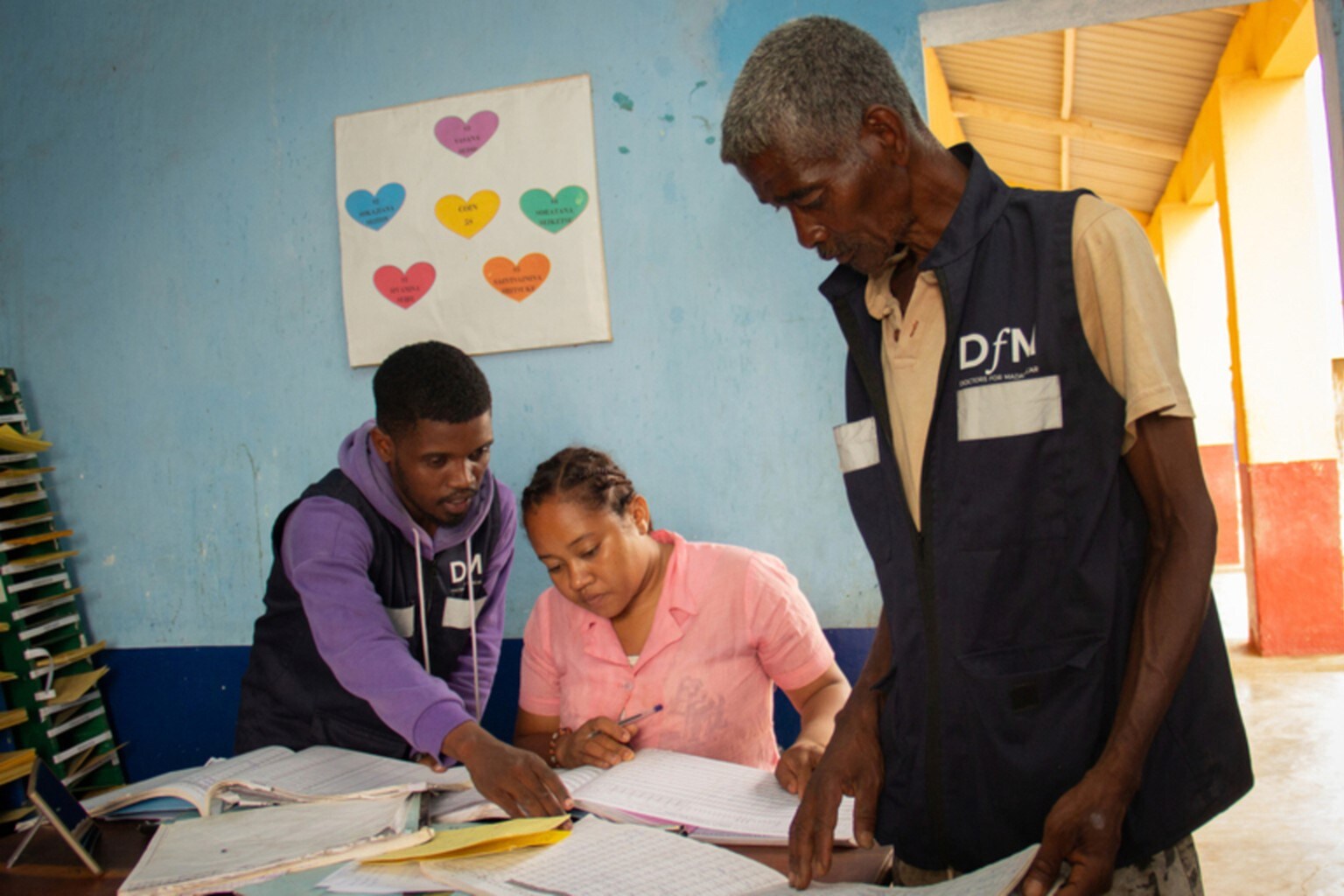
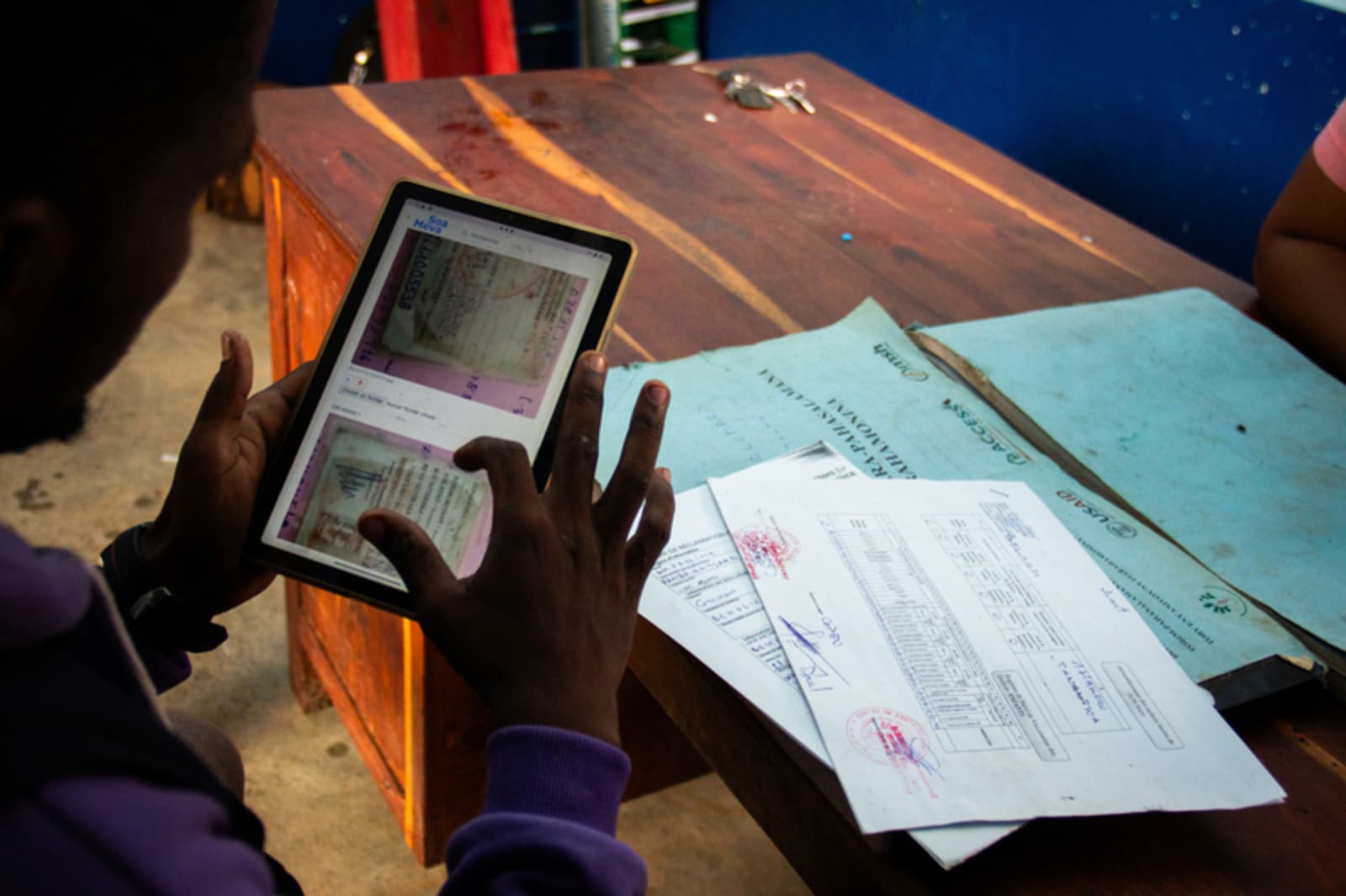
The key to reach rural families: Community Health Workers
The project involves 3,500 CHWs, who play a key role in identifying and vaccinating children using digital technology. Mr. Zarasoa, a CHW with 17 years of experience, shares: “I love learning about health and sharing it with my community.” In the mornings, he works in the fields, and in the afternoons, he visits families on his bike, equipped with a pen, community register, and smartphone. He adds, “I don’t just survey households — I also raise awareness about antenatal care.”
Mr. Zarasoa’s work reflects the dedication of CHWs, who not only refer children for vaccination but also educate and raise awareness, overcoming barriers to healthcare access.
Next Steps: Utilizing the Census Results
The census data collected by Mr. Zarasoa and other CHW’s will guide DfM’s mobile outreach efforts, prioritizing areas with the highest need for strengthening vaccination services. By understanding the prevalence of unvaccinated children, DfM can ensure resources are directed where they will have the greatest impact.
CHWs like Mr. Zarasoa will continue to play a central role in the next phase. With DfM’s support, they will conduct mobile vaccination activities, host cinema nights to raise awareness, and pilot a digital follow-up system. This system will streamline tracking and provide CHWs with tools to make more informed decisions, ensuring no child is left behind.
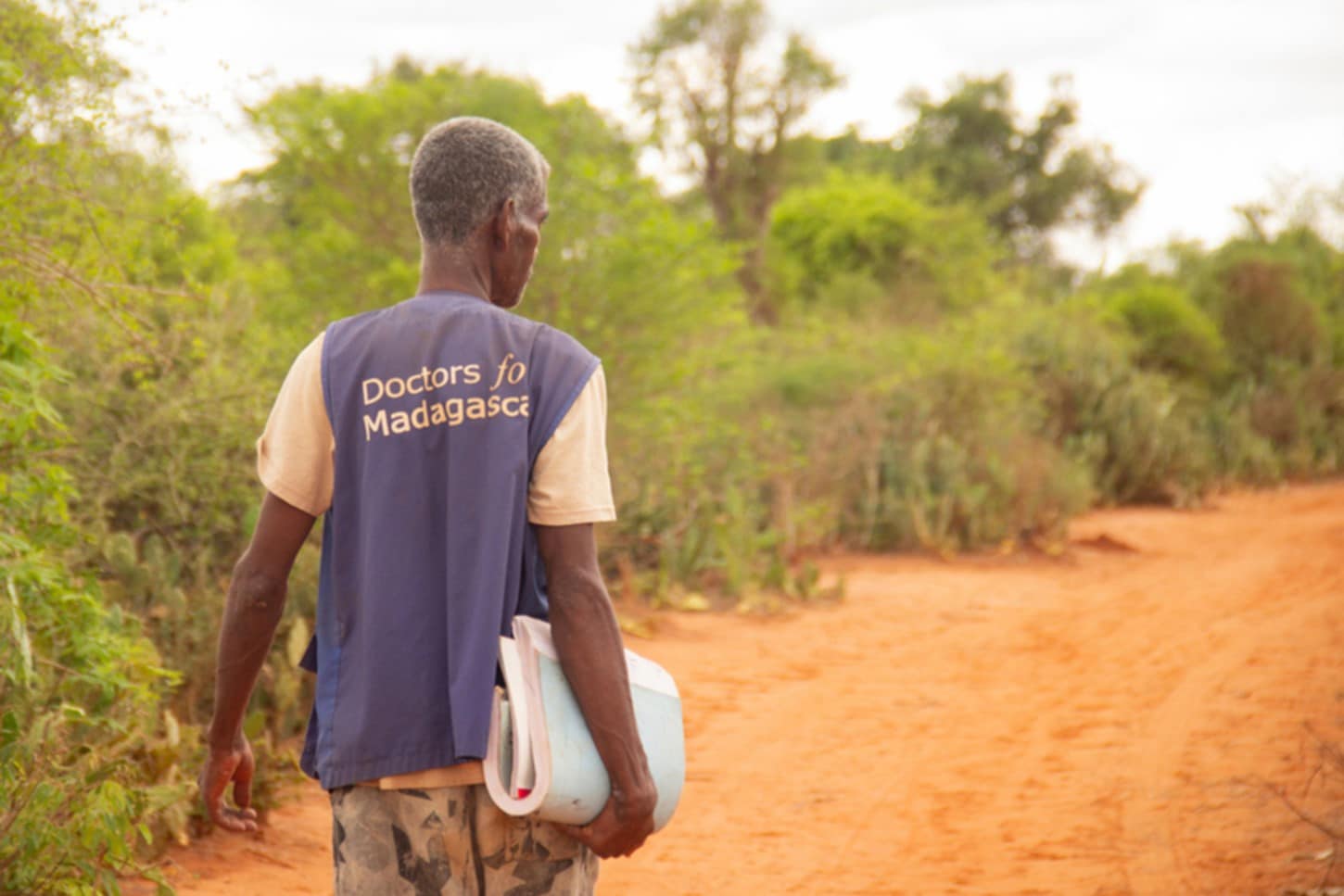
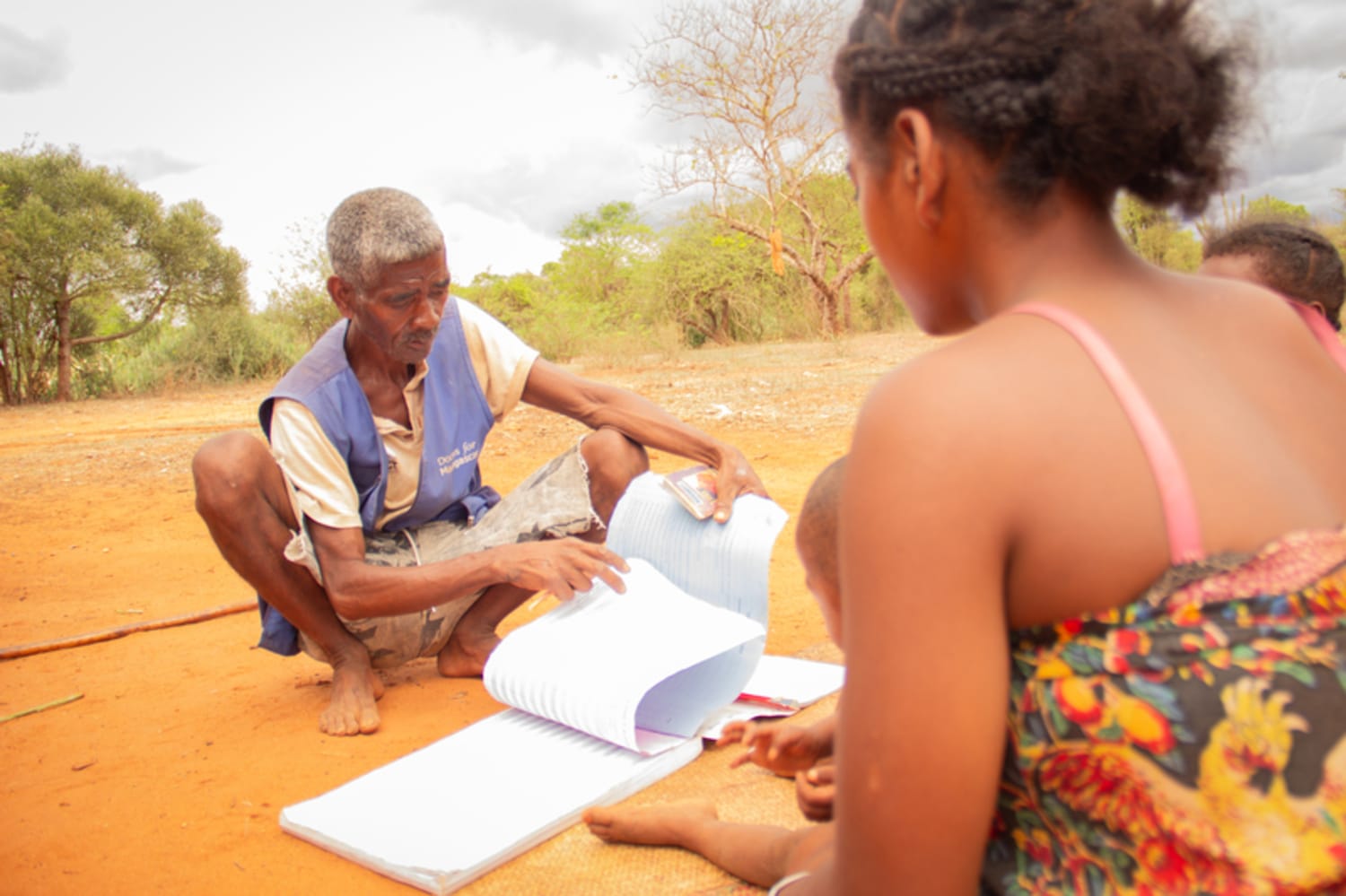

Towards a Sustainable Healthcare System in Madagascar
Dr. Muller emphasizes that “building a sustainable healthcare system requires long-term investments, including reliable financial support for CHWs enabling them in their essential role. Only then can we ensure healthcare is accessible, efficient, and consistent for every child across Madagascar.”
How Dedicated Community Health Workers Are Reaching Madagascar’s Unvaccinated Children



